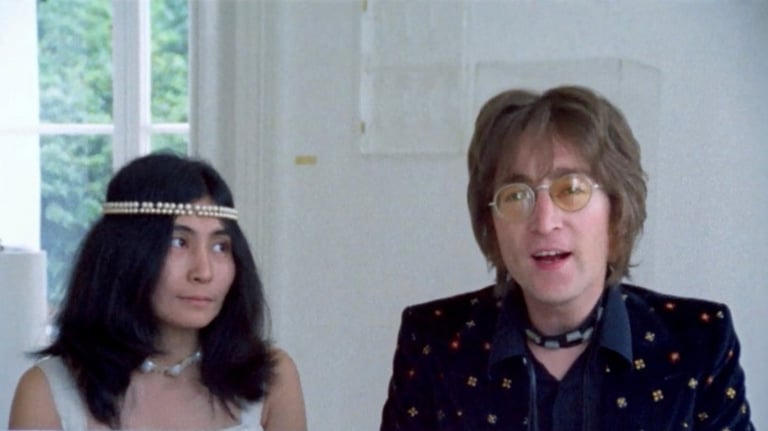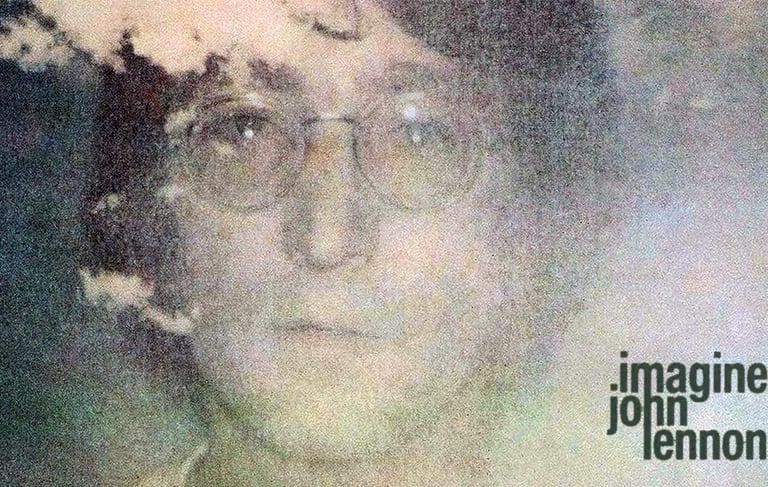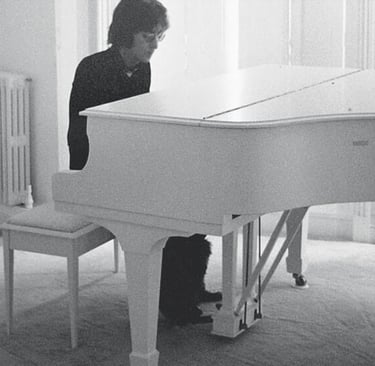JOHN LENNON
John Lennon, born John Winston Lennon, on October 9, 1940, in Liverpool, England, was a pivotal figure in 20th-century music and culture, known primarily as a founding member of The Beatles.
Lennon's childhood was marked by the absence of his father, Alfred Lennon, who sailed the seas as a merchant seaman. His mother, Julia Lennon, struggled to raise him on her own, and Lennon was largely raised by his aunt Mimi Smith and her husband, George. Despite this familial disruption, Lennon was a bright and precocious child, showing an early interest in music and art.
At age 16, Lennon's life took a tragic turn when his mother was struck and killed by a car driven by an off-duty police officer. This event had a profound impact on Lennon and would influence much of his later songwriting, including the poignant tribute "Julia" from The Beatles' White Album.
In his late teens, Lennon formed his first band, The Quarrymen, which eventually evolved into The Beatles after several lineup changes and the addition of Paul McCartney, George Harrison, and eventually Ringo Starr. The Beatles would go on to become one of the most successful and influential bands in history, revolutionising popular music and culture in the 1960s.
Lennon's music is characterised by its introspective lyrics, catchy melodies, and often poignant themes. During his time with The Beatles, Lennon contributed some of the band's most iconic songs, including "A Hard Day's Night," "Help!," "Strawberry Fields Forever," and "Come Together." His collaboration with Paul McCartney yielded some of the most celebrated songwriting partnerships in music history.
Following The Beatles' breakup in 1970, Lennon embarked on a successful solo career. His solo albums, including "John Lennon/Plastic Ono Band," "Imagine," and "Double Fantasy," showcased his diverse musical talents and his commitment to social and political activism. Lennon's music often reflected his personal experiences, political views, and philosophical beliefs. Songs like "Imagine" became anthems for peace and unity, while others like "Working Class Hero" and "Give Peace a Chance" reflected his activism and commitment to social justice.
Tragically, Lennon's life was cut short when he was fatally shot outside his New York City apartment in 1980. However, his music continues to resonate with audiences around the world, and his influence on popular music remains profound.


Feature Artist or Album



JEALOUS GUY
"Jealous Guy" has been widely interpreted as a deeply personal and confessional song, reflecting Lennon's desire for redemption and his commitment to self-improvement. Its emotional honesty and introspective lyrics have resonated with audiences, making it one of Lennon's most beloved and enduring compositions.
By Martin Francis
Josslyn Martin Arts.com
THE IMAGINE ALBUM
In 1971 "Imagine" is the second studio album by English musician John Lennon, released on September 9, 1971. It's one of Lennon's most famous and critically acclaimed works, featuring the iconic title track "Imagine," which has become an anthem for peace. The album was produced by Lennon, with Yoko Ono and Phil Spector. Apart from the title track, other notable songs on the album include "Jealous Guy," "Gimme Some Truth," and "Oh My Love." The album showcases Lennon's introspective songwriting, touching on themes of love, peace, politics, and personal introspection.


